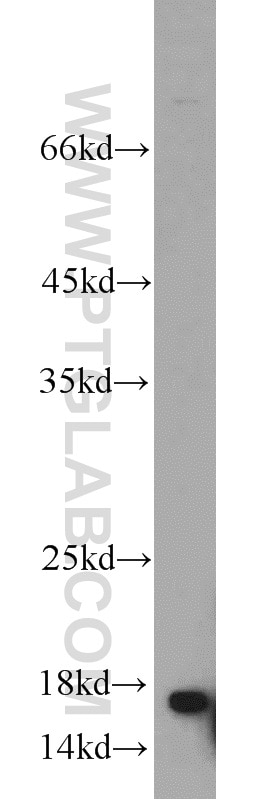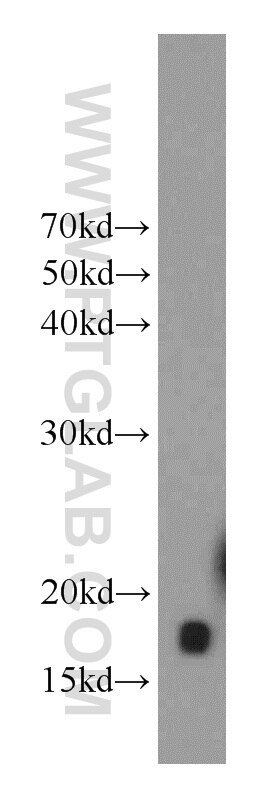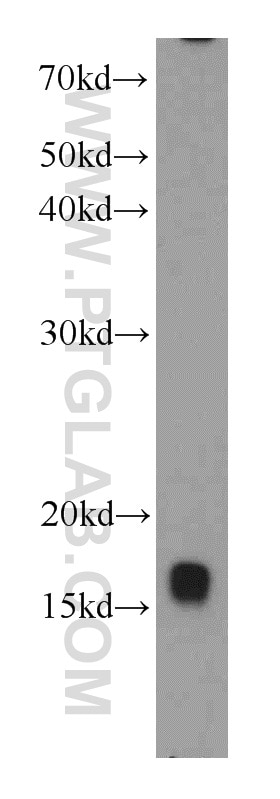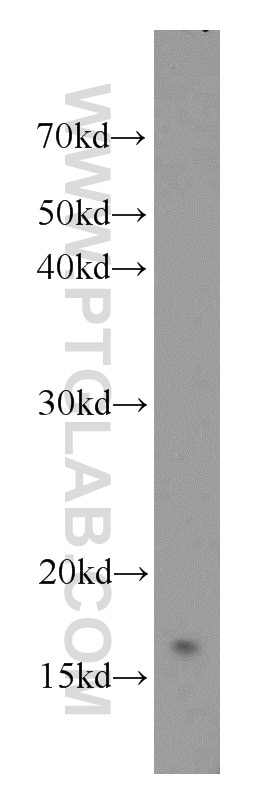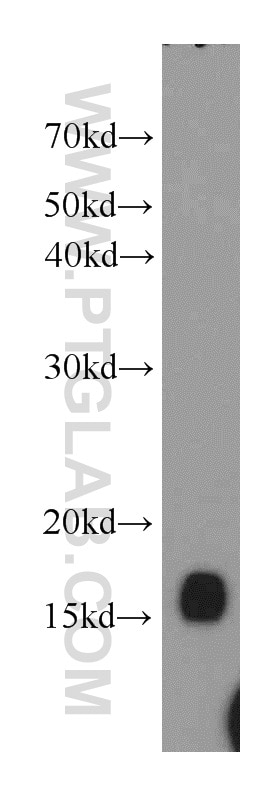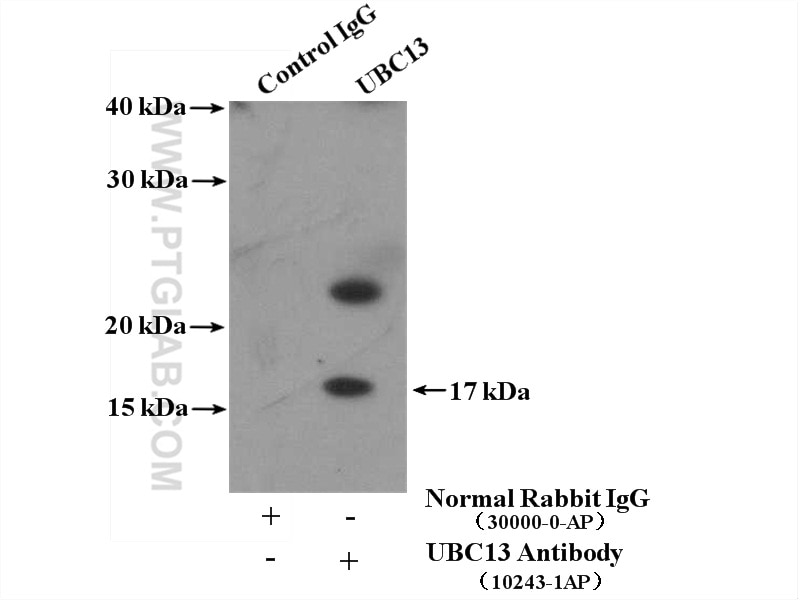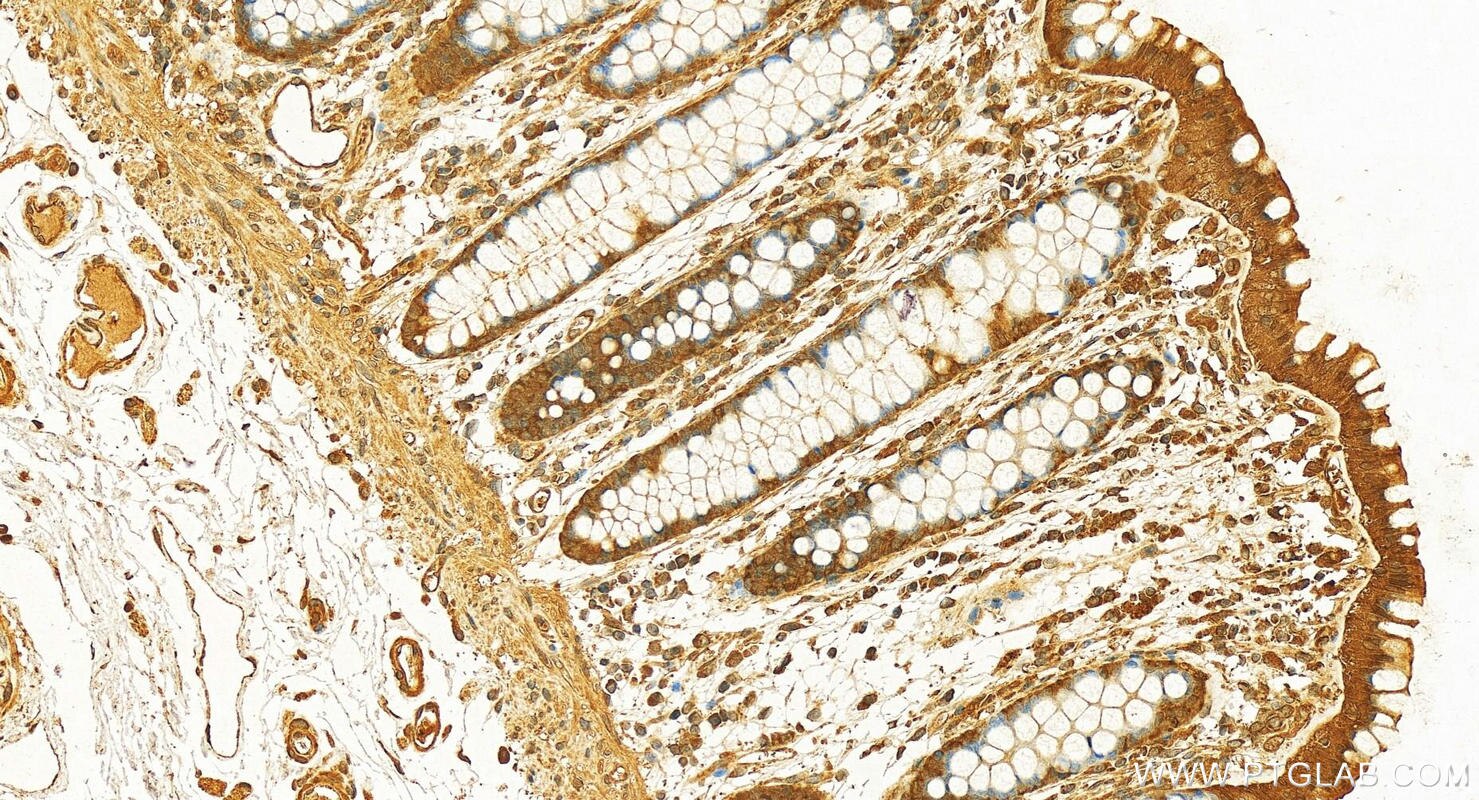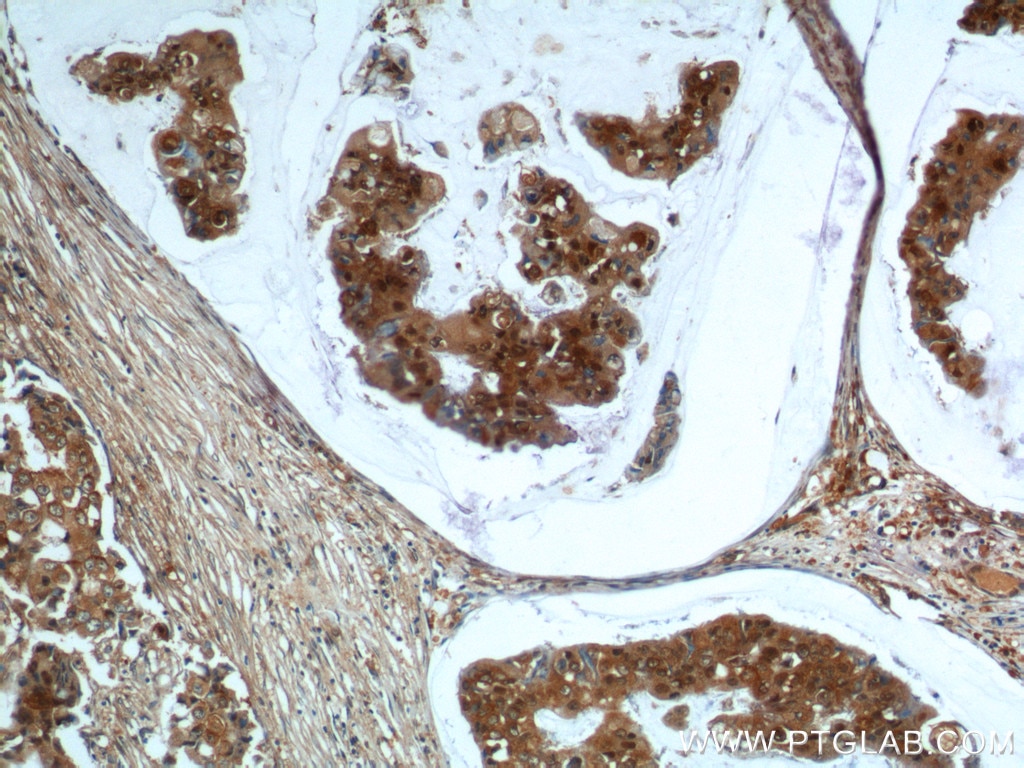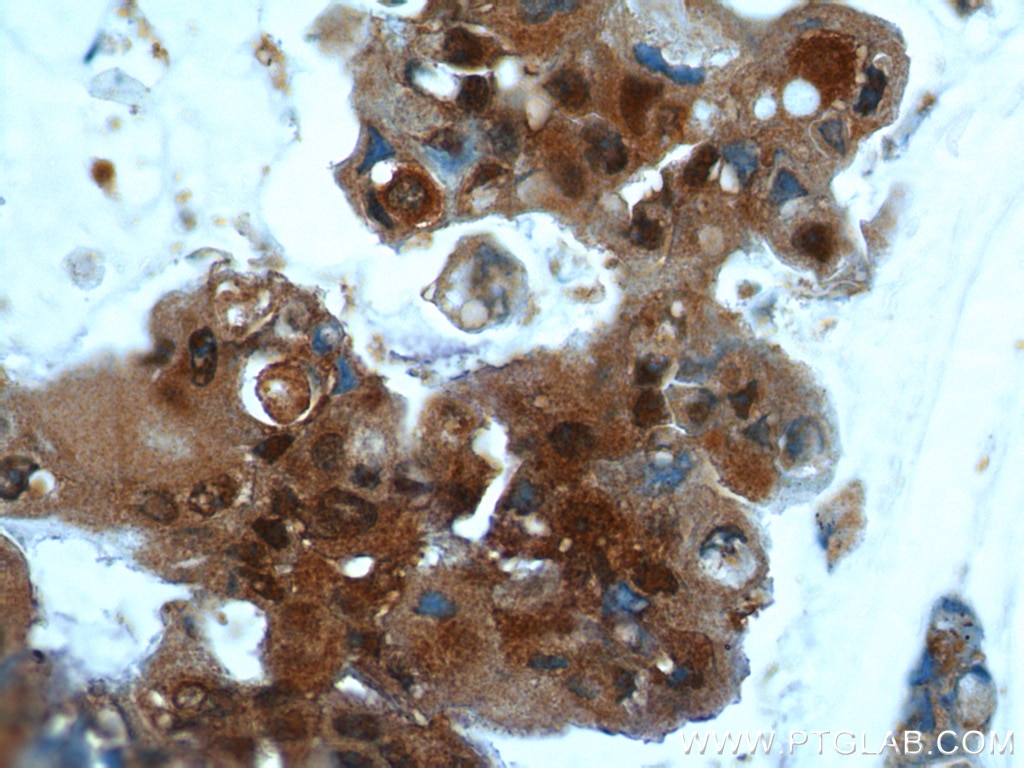Anticorps Polyclonal de lapin anti-UBC13
UBC13 Polyclonal Antibody for WB, IHC, IP, ELISA
Hôte / Isotype
Lapin / IgG
Réactivité testée
Humain, rat, souris et plus (2)
Applications
WB, IHC, IP, ChIP, ELISA
Conjugaison
Non conjugué
N° de cat : 10243-1-AP
Synonymes
Galerie de données de validation
Applications testées
| Résultats positifs en WB | tissu de thymus de souris, cellules Jurkat, tissu cardiaque humain, tissu d'intestin grêle de souris |
| Résultats positifs en IP | cellules MCF-7 |
| Résultats positifs en IHC | tissu de côlon humain, tissu de cancer du sein humain il est suggéré de démasquer l'antigène avec un tampon de TE buffer pH 9.0; (*) À défaut, 'le démasquage de l'antigène peut être 'effectué avec un tampon citrate pH 6,0. |
Dilution recommandée
| Application | Dilution |
|---|---|
| Western Blot (WB) | WB : 1:500-1:2000 |
| Immunoprécipitation (IP) | IP : 0.5-4.0 ug for 1.0-3.0 mg of total protein lysate |
| Immunohistochimie (IHC) | IHC : 1:50-1:500 |
| It is recommended that this reagent should be titrated in each testing system to obtain optimal results. | |
| Sample-dependent, check data in validation data gallery | |
Applications publiées
| WB | See 6 publications below |
| IHC | See 1 publications below |
| IP | See 1 publications below |
| ChIP | See 1 publications below |
Informations sur le produit
10243-1-AP cible UBC13 dans les applications de WB, IHC, IP, ChIP, ELISA et montre une réactivité avec des échantillons Humain, rat, souris
| Réactivité | Humain, rat, souris |
| Réactivité citée | Humain, porc, singe, souris |
| Hôte / Isotype | Lapin / IgG |
| Clonalité | Polyclonal |
| Type | Anticorps |
| Immunogène | UBC13 Protéine recombinante Ag0292 |
| Nom complet | ubiquitin-conjugating enzyme E2N (UBC13 homolog, yeast) |
| Masse moléculaire calculée | 17 kDa |
| Poids moléculaire observé | 17 kDa |
| Numéro d’acquisition GenBank | BC000396 |
| Symbole du gène | UBC13/UBE2N |
| Identification du gène (NCBI) | 7334 |
| Conjugaison | Non conjugué |
| Forme | Liquide |
| Méthode de purification | Purification par affinité contre l'antigène |
| Tampon de stockage | PBS with 0.02% sodium azide and 50% glycerol |
| Conditions de stockage | Stocker à -20°C. Stable pendant un an après l'expédition. L'aliquotage n'est pas nécessaire pour le stockage à -20oC Les 20ul contiennent 0,1% de BSA. |
Informations générales
The modification of proteins with ubiquitin is an important cellular mechanism for targeting abnormal or short-lived proteins for degradation. Ubiquitination involves at least three classes of enzymes: ubiquitin-activating enzymes, or E1s, ubiquitin-conjugating enzymes, or E2s, and ubiquitin-protein ligases, or E3s. UBE2N is a member of the E2 ubiquitin-conjugating enzyme family. Studies in mouse suggest that this protein plays a role in DNA postreplication repair.
Protocole
| Product Specific Protocols | |
|---|---|
| WB protocol for UBC13 antibody 10243-1-AP | Download protocol |
| IHC protocol for UBC13 antibody 10243-1-AP | Download protocol |
| IP protocol for UBC13 antibody 10243-1-AP | Download protocol |
| Standard Protocols | |
|---|---|
| Click here to view our Standard Protocols |
Publications
| Species | Application | Title |
|---|---|---|
Alzheimers Dement Suppressing UBE2N ameliorates Alzheimer's disease pathology through the clearance of amyloid beta | ||
Cell Mol Immunol The deubiquitinase OTUB1 augments NF-κB-dependent immune responses in dendritic cells in infection and inflammation by stabilizing UBC13. | ||
Mol Cell Proteomics The mechano-ubiquitinome of articular cartilage: Differential ubiquitination and activation of a group of ER-associated DUBs and ER stress regulators | ||
Nat Commun FTO-dependent m6A modification of Plpp3 in circSCMH1-regulated vascular repair and functional recovery following stroke | ||
Mol Biomed SP1 transcriptionally regulates UBE2N expression to promote lung adenocarcinoma progression | ||
Proc Natl Acad Sci U S A Nonproteolytic ubiquitination regulates chromatin occupancy by the NCoR/SMRT/HDAC3 corepressor complex in MCF-7 breast cancer cells |
Avis
The reviews below have been submitted by verified Proteintech customers who received an incentive for providing their feedback.
FH Jessica (Verified Customer) (11-14-2019) | Antibody works well for detecting the endogenous Ubc13 protein in 293T cells. Strong signal and few non specific bands.
|
